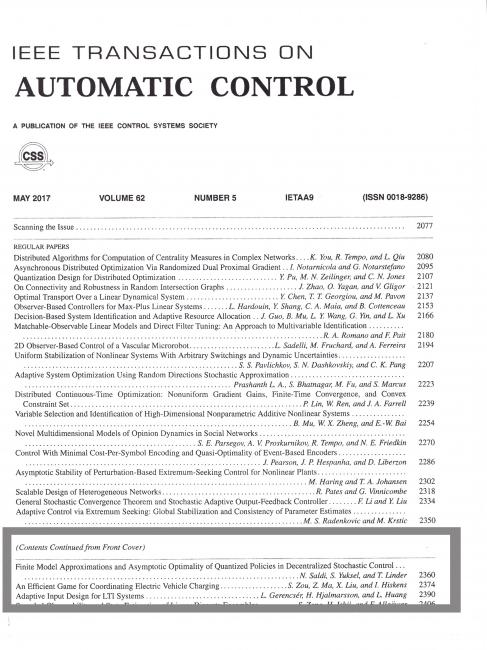Breakthrough in Adaptive Input Design
Experience shows that a major part of the cost of system identification is associated with performing experiments on the plant in question. For dynamical systems, it has been shown that a careful design of the experiment can lead to significant cost reduction. These observations have prompted renewed interest in adaptive input design. A major advance in this area, providing a theoretical justification for a standard adaptive method, was published recently in the IEEE Trans. on Automatic Control by László Gerencsér and Håkan Hjalmarsson.
A key open problem in the field of optimal experiment design was that the spectra of optimal inputs depend on the unknown system parameters that are to be identified. A widely used heuristic method employs an adaptive scheme to overcome this difficulty. According to this scheme, the input design problem is solved at equidistant sampling times using the current, recursively updated estimator of the system parameters.

A major advance in this area providing a theoretical justification of the above method was published recently in one of the top journals in control engineering, the IEEE Trans. on Automatic Control, in its 2017 May issue. The paper was written by László Gerencsér (Research Advisor of our Instiute working for the Systems and Control Lab) in cooperation with Håkan Hjalmarsson (Professor at the School of Electrical Engineering, KTH Stockholm). The paper is open access, and has received 411 full text views so far.
